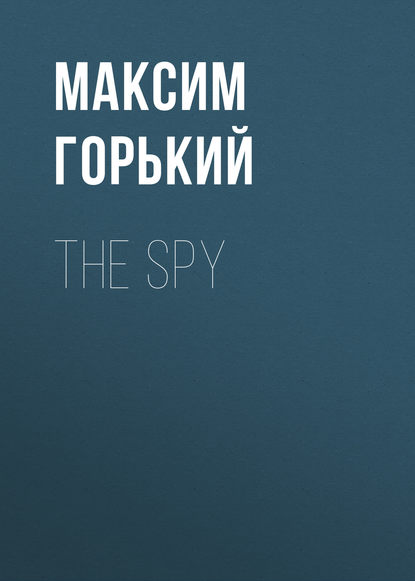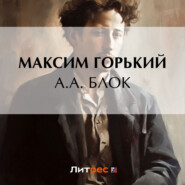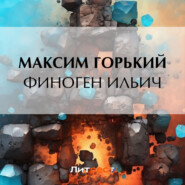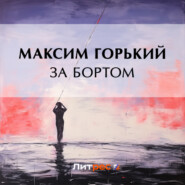По всем вопросам обращайтесь на: info@litportal.ru
(©) 2003-2025.
✖
The Spy
Настройки чтения
Размер шрифта
Высота строк
Поля
Yevsey's head drooped sadly.
One detached house after another seemed to step toward them, dirty and wrapped in heavy odors, with chimneys sticking from their red and green roofs, like warts. Bluish-grey smoke rose from them lazily. Some chimneys, monstrously tall and dirty, jutted straight up from the ground, and emitted thick black clouds of smoke. The ground was compactly trodden, and seemed to be steeped in black grease. Everywhere heavy alarming sounds penetrated the smoky atmosphere. Something growled, hummed and whistled; iron clanged angrily, and some huge creature breathed hoarsely and brokenly.
"When will we get to the place?" asked Yevsey.
Looking carefully in front of him the uncle said:
"This isn't the city yet. These are factories in the suburb."
Finally they pulled into a broad street lined with old squat frame houses painted various colors, which had a peaceful, homelike appearance. Especially fine were the clean cheerful houses with gardens, which seemed to be tied about with green aprons.
"We'll soon be there," said the blacksmith, turning the horse into a narrow side street. "Don't be afraid, Orphan."
He drew up at the open gate of a large house, jumped down, and walked into the yard. The house was old and bent. The joists protruded from under the small dim windows. In the large dirty yard there were a number of carriages, and four muzhiks talking loudly stood about a white horse tapping it with their hands. One of them, a round, bald-headed fellow with a large yellow beard and a rosy face, waved his hands wildly on seeing Piotr, and cried:
"Oh!"
They went to a narrow, dark room, where they sat down and drank tea. Uncle Piotr spoke about the village. The bald fellow laughed and shouted so that the dishes rattled on the table. It was close in the room and smelled of hot bread. Yevsey wanted to sleep, and he kept looking into the corner where behind dirty curtains he could see a wide bed with several pillows. Large black flies buzzed about, knocking against his forehead, crawling over his face, and tickling his perspiring skin; but he restrained himself from driving them away.
"We'll find a place for you!" the bald man shouted to him, nodding his head gaily. "In a minute! Natalya, did you call for Matveyevich?"
A full woman with dark lashes, a small mouth, and a high bust, answered calmly and clearly:
"How many times have you asked me already?"
She held her head straight and proudly, and when she moved her hands the rose-colored chintz of her new jacket rustled sumptuously. Her whole being recalled some good dream or fairy tale.
"Piotr, my friend, look at Natalya. What a Natalya! Droppings from the honey-comb!" shouted the bald man deafeningly.
Uncle Piotr laughed quietly, as if fearing to look at the woman, who pushed a hot rye cake filled with curds toward Yevsey, and said:
"Eat, eat a lot. In the city people must eat a good deal."
A jar of preserves stood on the table, honey in a saucer, toasted cracknels sprinkled with anise-seed, sausage, cucumber, and vodka. All this filled the air with a strong odor. Yevsey grew faint from the oppressive sensation of over-abundance, though he did not dare to decline, and submissively chewed everything set before him.
"Eat!" cried the bald man, then continued his talk with Uncle Piotr. "I tell you, it's luck. It's only a week since the horse crushed the little boy. He went to the tavern for boiling water, when suddenly – "
Another man now made his entrance unnoticed by the others. He, too, was bald, but small and thin, with dark eyeglasses on a large nose, and a long tuft of grey hair on his chin.
"What is it, people?" he asked in a low, indistinct voice.
The master jumped up from his chair, uttered a cry, and laughed aloud. Yevsey was suddenly seized with alarm.
The man addressed Piotr and his hosts as "People," by which he separated himself from them. He sat down at some distance from the table, then moved to one side away from the blacksmith, and looked around moving his thin dry neck slowly. On his head, a little above his forehead, over his right eye, was a large bump. His little pointed ears clung closely to his skull, as if to hide themselves in the short fringe of his grey hair. He produced the impression of a quiet, grey, seedy, person. Yevsey unsuccessfully tried to get a surreptitious peep at his eyes under the glasses. His failure disquieted him.
The host cried:
"Do you understand, Orphan?"
"This is a trump," remarked the man with the bump. He sat supporting his thin dark hands on his sharp knees, and spoke little. Occasionally Yevsey heard the men utter some peculiar words.
At last the newcomer said:
"And so it is settled."
Uncle Piotr moved heavily in his chair.
"Now, Orphan, you have a place. This is your master." He turned to the master. "I want to tell you, sir, that the boy can read and write, and is not at all a stupid fellow. I am not saying this because I can't find a place for him, but because it is the truth. The boy is even very curious – "
"I have no need for curiosity," said the master shaking his head.
"He's a quiet sort. They call him Old Man in the village – that's the kind he is."
"We shall see," said the man with the bump on his forehead. He adjusted his glasses, scrutinized Yevsey's face closely, and added, "My name is Matvey Matveyevich."
Turning away, he took up a glass of tea, which he drank noiselessly. Then he rose and with a silent nod walked out.
Yevsey and his uncle now went to the yard, where they seated themselves in the shade near the stable. The blacksmith spoke to Yevsey cautiously, as if groping with his words for something unintelligible to him.
"You'll surely have it good with him. He's a quiet little old man. He has run his course and left all sorts of sins behind him. Now he lives in order to eat a little bite, and he grumbles and purrs like a satiated Tom-cat."
"But isn't he a sorcerer?" asked the boy.
"Why? I should think there are no sorcerers in the cities." After reflecting a few moments, the blacksmith went on. "Anyway it's all the same to you. A sorcerer is a man, too. But remember this, a city is a dangerous place. This is how it spoils people: the wife of a man goes away on a pilgrimage, and he immediately puts in her place some housemaid or other, and indulges himself. But the old man can't show you such an example. That's why I say you'll have it good with him. You will live with him as behind a bush, sitting and looking."
"And when he dies?" Yevsey inquired warily.
"That probably won't be soon. Smear your head with oil to keep your hair from sticking out."
About noon the uncle made Yevsey bid farewell to their hosts, and taking him firmly by the hand led him to the city. They walked for a long time. It was sultry. Often they asked the passersby how to get to the Circle. Yevsey regarded everything with his owl-like eyes, pressing close up to his uncle. The doors of shops slammed, pulleys squeaked, carriages rattled, wagons rumbled heavily, traders shouted, and feet scraped and tramped. All these sounds jumbled together were tangled up in the stifling dusty atmosphere. The people walked quickly, and hurried across the streets under the horses' noses as if afraid of being too late for something. The bustle tired the boy's eyes. Now and then he closed them, whereupon he would stumble and say to his uncle:
"Come, faster!"
Yevsey wanted to get to some place in a corner where it was not so stirring, not so noisy and hot. Finally they reached a little open place hemmed in by a narrow circle of old houses, which seemed to support one another solidly and firmly. In the center of the Circle was a fountain about which moist shadows hovered on the soil. It was more tranquil here, and the noise was subdued.
"Look," said Yevsey, "there are only houses and no ground around them at all."
The blacksmith answered with a sigh:
"It's pretty crowded. Read the signs. Where is Raspopov's shop?"
They walked to the center of the Circle, and stopped at the fountain. There were many signs, which covered every house like the motley patches of a beggar's coat. When Yevsey saw the name his uncle had mentioned, a chill shiver ran through his body, and he examined it carefully without saying anything. It was small and eaten by rust, and was placed on the door of a dark basement. On either side the door there was an area between the pavement and the house, which was fenced in by a low iron railing. The house, a dirty yellow with peeling plaster, was narrow with four stories and three windows to each floor. It looked blind as a mole, crafty, and uncozy.
"Well," asked the smith, "can't you see the sign?"
"There it is," said the boy, indicating the place with a nod of his head.
"Let's cross ourselves and go."

















